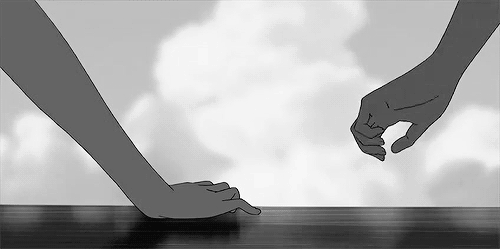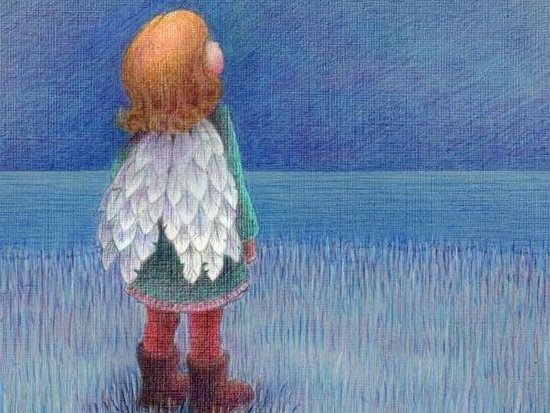Making Mistakes Is Common; Apologizing Is a Virtue of Few

Making mistakes is human. It is also an exceptional opportunity to grow in a humble manner and realize that life is a continuous learning process. Now, it is also wise to accompany every failure, every neglect and offense with a “forgive me”. A virtue of few that many should put into practice.
That internal mechanism of self-evaluation through which we realize that we haven’t done the right thing, is dominated by a well-known tenant called “ego“. In fact, there is no greater worm than someone who, far from empathizing with the person who is hurt, focuses solely in the subtle but ferocious necessity to protect that dimension.
If you think about it thoroughly, you’ll realize that we use the word “sorry” almost on an everyday basis. When we stumble into someone, when we interrupt a friend and talk over them in a conversation. However, very few people, after making a mistake in a delicate and deep aspect of their lives, are capable of taking the plunge. Very few can bare their heart with an “I’m sorry, I messed up. Please, forgive me”.
Why is this usually so hard for us? We invite you to reflect upon this issue.

Making a mistake, a human factor
All of us are wonderfully fallible. Far from viewing a mistake as something negative, we should value the error in all of its transcendence and details, in order to be able to infer a lesson. Because a mistake is nothing more than a direct invitation to improve.
Now, we also know that there are mistakes, and then there are mistakes. There are times when we make mistakes, as James Joyce once said, that are no more than portals towards self-discovery. Science itself is full of those incredible “serendipities”. Moments when famous scientists stumbled upon an innovative find after making an opportune mistake.
This human factor acquires its more complex counterpart when making a mistake becomes a synonym of offense, of personal humiliation to second parties. These situations are intensified even more when, far from there being an expressed acknowledgement of the offense, the person repeats the offense. Maybe due to pride or because of a deep emotional immaturity.
A society that punishes mistakes
We live in a society that actually apologizes quite rarely. And when we do, we show at times that immaturity which we were mentioning previously. There are some people who ask for forgiveness through Whatsapp. Or even those who publish their apologies on social networks for the peanut gallery, so that the affected person has no other choice than to give in.
We also live in a social scenario where children are taught that making mistakes is bad. Within the current educational system, a student’s failure is something punishable. It is something to correct, but not without applying the suspense of rigor. Hence, the child learns from a very early age to develop ferocious defense mechanisms to camouflage their errors. In order to not see them, and therefore be able to protect their self-esteem.
That’s when a curious vicious cycle commences. If I can’t nor want to see my mistake, then I don’t have to apologize. Slowly, we have lost the quality of apologizing. It has been replaced by the act of simply camouflaging, due to an oversized ego. We all let marvelous opportunities to learn and improve go by. This is because, from such an early age, we have treated mistakes and errors as something negative and sanctionable.

The virtue of knowing how to apologize after making a mistake
Authentic forgiveness, the kind that heals and produces closeness, it’s not limited to a simple act of altruism. Forgiveness is, above all, an attitude and the clear decision to be brave. It is the recognition of the damages, in order to show the person in front of us that we are aware of what they have caused.
Now, we also have to be clear on the fact that not every “I’m sorry” counts. Not every person that asks for forgiveness will be forgiven. Nevertheless, you have to do it, and you have to do it well. In order to put into practice the healthy virtue of knowing how to apologize after a mistake, we can draw on some conclusions reached by a study conducted by the University of Ohio.
- Tear down prejudice. Our society keeps associating the act of apologizing with weakness. Thus, it’s time to tear down all of that inner prejudice. Time to understand that there is no one braver than he who can cover themselves with humility and apologize.
- Visual contact and assertiveness helps you not fall into false justifications. It’s a must to look the person that you have wronged in the eye, in order to clearly expose how you are wrong.
- You will acknowledge your responsibility in everything that happened.
- Repentance, in order to be credible, must always be accompanied by the clear will to repair the damages.
- Forgiveness must be offered without drama and with the appropriate empathy.

People often say that he who apologizes first is the bravest and he who offers forgiveness is the humblest. But in truth, our greatness lies in learning from all of these steps. Every day they help us survive in our personal contradictions, in which our ego never has a good place.
Because there is nothing that teaches you more than making a mistake. And there is nothing more worthy than knowing how to ask for forgiveness.
Making mistakes is human. It is also an exceptional opportunity to grow in a humble manner and realize that life is a continuous learning process. Now, it is also wise to accompany every failure, every neglect and offense with a “forgive me”. A virtue of few that many should put into practice.
That internal mechanism of self-evaluation through which we realize that we haven’t done the right thing, is dominated by a well-known tenant called “ego“. In fact, there is no greater worm than someone who, far from empathizing with the person who is hurt, focuses solely in the subtle but ferocious necessity to protect that dimension.
If you think about it thoroughly, you’ll realize that we use the word “sorry” almost on an everyday basis. When we stumble into someone, when we interrupt a friend and talk over them in a conversation. However, very few people, after making a mistake in a delicate and deep aspect of their lives, are capable of taking the plunge. Very few can bare their heart with an “I’m sorry, I messed up. Please, forgive me”.
Why is this usually so hard for us? We invite you to reflect upon this issue.

Making a mistake, a human factor
All of us are wonderfully fallible. Far from viewing a mistake as something negative, we should value the error in all of its transcendence and details, in order to be able to infer a lesson. Because a mistake is nothing more than a direct invitation to improve.
Now, we also know that there are mistakes, and then there are mistakes. There are times when we make mistakes, as James Joyce once said, that are no more than portals towards self-discovery. Science itself is full of those incredible “serendipities”. Moments when famous scientists stumbled upon an innovative find after making an opportune mistake.
This human factor acquires its more complex counterpart when making a mistake becomes a synonym of offense, of personal humiliation to second parties. These situations are intensified even more when, far from there being an expressed acknowledgement of the offense, the person repeats the offense. Maybe due to pride or because of a deep emotional immaturity.
A society that punishes mistakes
We live in a society that actually apologizes quite rarely. And when we do, we show at times that immaturity which we were mentioning previously. There are some people who ask for forgiveness through Whatsapp. Or even those who publish their apologies on social networks for the peanut gallery, so that the affected person has no other choice than to give in.
We also live in a social scenario where children are taught that making mistakes is bad. Within the current educational system, a student’s failure is something punishable. It is something to correct, but not without applying the suspense of rigor. Hence, the child learns from a very early age to develop ferocious defense mechanisms to camouflage their errors. In order to not see them, and therefore be able to protect their self-esteem.
That’s when a curious vicious cycle commences. If I can’t nor want to see my mistake, then I don’t have to apologize. Slowly, we have lost the quality of apologizing. It has been replaced by the act of simply camouflaging, due to an oversized ego. We all let marvelous opportunities to learn and improve go by. This is because, from such an early age, we have treated mistakes and errors as something negative and sanctionable.

The virtue of knowing how to apologize after making a mistake
Authentic forgiveness, the kind that heals and produces closeness, it’s not limited to a simple act of altruism. Forgiveness is, above all, an attitude and the clear decision to be brave. It is the recognition of the damages, in order to show the person in front of us that we are aware of what they have caused.
Now, we also have to be clear on the fact that not every “I’m sorry” counts. Not every person that asks for forgiveness will be forgiven. Nevertheless, you have to do it, and you have to do it well. In order to put into practice the healthy virtue of knowing how to apologize after a mistake, we can draw on some conclusions reached by a study conducted by the University of Ohio.
- Tear down prejudice. Our society keeps associating the act of apologizing with weakness. Thus, it’s time to tear down all of that inner prejudice. Time to understand that there is no one braver than he who can cover themselves with humility and apologize.
- Visual contact and assertiveness helps you not fall into false justifications. It’s a must to look the person that you have wronged in the eye, in order to clearly expose how you are wrong.
- You will acknowledge your responsibility in everything that happened.
- Repentance, in order to be credible, must always be accompanied by the clear will to repair the damages.
- Forgiveness must be offered without drama and with the appropriate empathy.

People often say that he who apologizes first is the bravest and he who offers forgiveness is the humblest. But in truth, our greatness lies in learning from all of these steps. Every day they help us survive in our personal contradictions, in which our ego never has a good place.
Because there is nothing that teaches you more than making a mistake. And there is nothing more worthy than knowing how to ask for forgiveness.
This text is provided for informational purposes only and does not replace consultation with a professional. If in doubt, consult your specialist.







